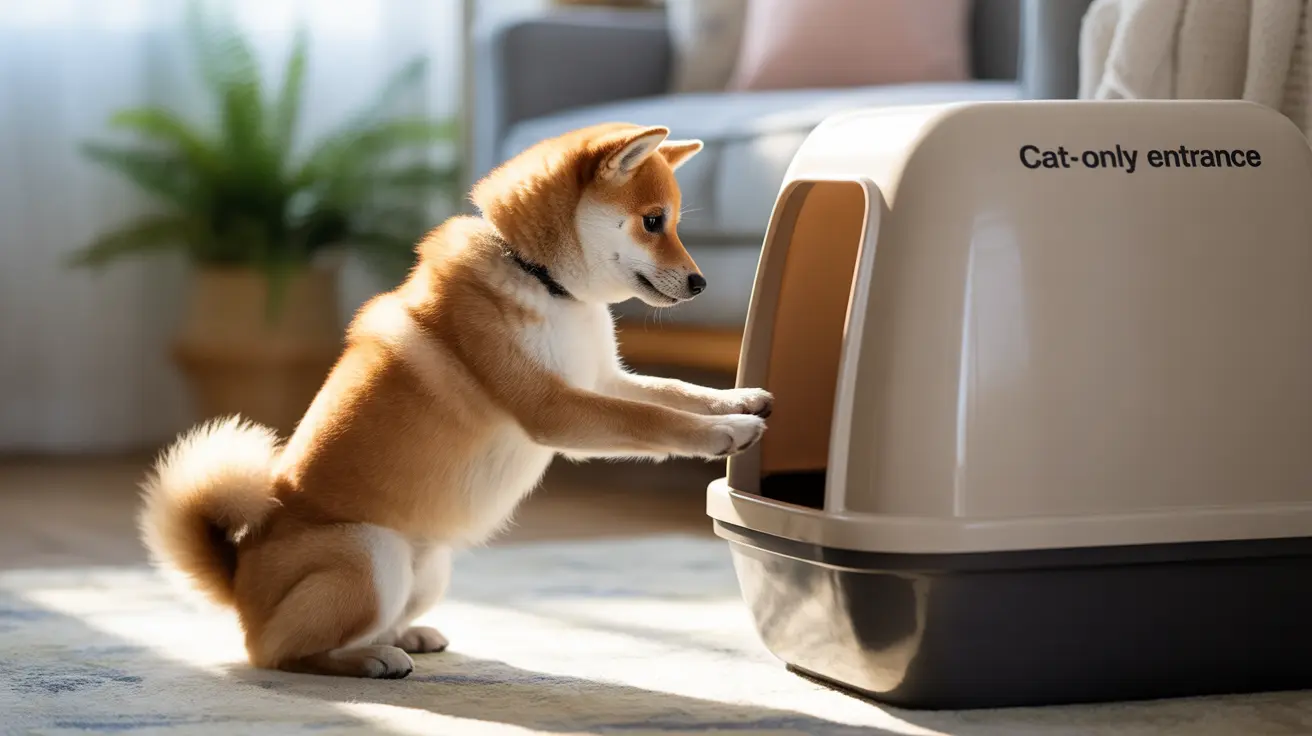If you're a pet parent with both dogs and cats, you've likely encountered the unsettling sight of your dog raiding the litter box for a forbidden snack. This behavior, known as interspecific coprophagia, is more common than you might think. While it may seem disgusting to us, there are several natural and behavioral reasons why dogs are drawn to cat feces.
In this comprehensive guide, we'll explore the science behind this behavior, understand the potential health risks, and learn effective strategies to prevent your dog from turning the litter box into an all-you-can-eat buffet.
The Natural Instinct Behind the Behavior
Dogs are natural scavengers with an evolutionary history of eating whatever they can find to survive. This instinctual behavior extends to consuming feces, particularly those of other animals. Cat poop is especially attractive to dogs because it contains high levels of protein and fat, remnants of the cat's protein-rich diet.
Even well-fed dogs may be drawn to cat feces simply because their keen sense of smell detects these appetizing nutrients. This behavior is particularly common in puppies, who explore their world mouth-first and often need to learn what is and isn't appropriate to eat.
Health and Nutritional Factors
While nutritional deficiencies are rarely the cause in dogs fed quality commercial diets, some dogs may be drawn to cat feces due to:
- Insufficient protein in their diet
- Enzyme deficiencies
- Vitamin or mineral imbalances
- Malabsorption issues
However, most cases of coprophagia are behavioral rather than nutritional, especially in dogs receiving complete and balanced meals.
Potential Health Risks
Eating cat poop isn't just unpleasant - it can pose serious health risks to your dog. These include:
- Exposure to harmful parasites like Toxoplasma gondii
- Bacterial infections from Salmonella or E. coli
- Intestinal worms
- Digestive issues from ingested cat litter
- Possible blockages from clumping litter
Prevention Strategies That Work
Environmental Management
The most effective approach is to make the litter box inaccessible to your dog:
- Place the litter box in a cat-only area
- Use baby gates or door stops
- Install a covered litter box with a cat-only entrance
- Keep the box clean and scoop frequently
Behavioral Training
Consistent training can help discourage this behavior:
- Teach the "leave it" command
- Reward your dog for ignoring the litter box
- Provide plenty of physical exercise and mental stimulation
- Consider using deterrent sprays around the litter area
When to Seek Veterinary Help
Consult your veterinarian if:
- The behavior starts suddenly
- Your dog shows other unusual symptoms
- The behavior persists despite prevention efforts
- You're concerned about possible nutritional deficiencies
Frequently Asked Questions
Why do dogs eat cat poop from the litter box?
Dogs are attracted to cat poop due to their scavenging instincts and the high protein content in cat feces. The behavior can also be triggered by curiosity, boredom, or stress.
Can a dog eating cat poop cause health problems or infections?
Yes, eating cat poop can expose dogs to parasites, bacteria, and other pathogens. There's also a risk of intestinal blockage from ingested cat litter.
How can I stop my dog from eating cat poop at home?
The most effective methods include restricting access to the litter box, keeping it clean, providing proper exercise and mental stimulation, and using positive reinforcement training.
Is my dog eating cat poop because of nutritional deficiencies?
While possible, nutritional deficiencies are rarely the cause in dogs fed quality commercial diets. However, consult your veterinarian if you're concerned about your dog's nutrition.
What behavioral reasons make dogs attracted to cat feces?
Dogs may be attracted to cat feces due to natural scavenging instincts, boredom, stress, attention-seeking behavior, or simply because they find it appetizing due to its high protein content.
While this behavior can be concerning for pet owners, understanding its causes and implementing proper prevention strategies can help keep your dog away from the litter box. Remember to be patient and consistent with your chosen management approach, and don't hesitate to seek professional help if needed.






